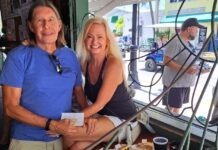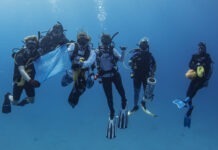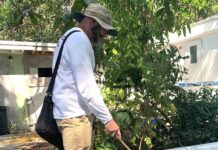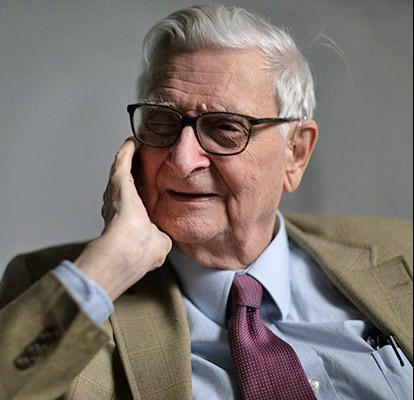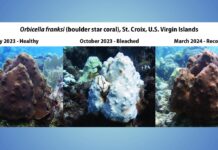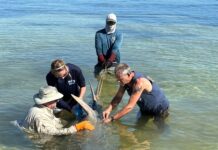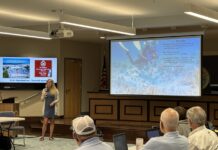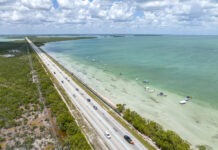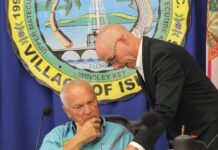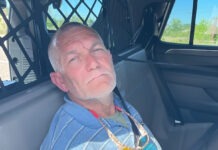Imagine this scenario: A young scientist asks Monroe County agencies if he can conduct an experiment. He would like to tent off some small mangrove islands — just six teeny, tiny ones — and gas all the insects living there so that they all die. Then, he would document what happens.
Do you think that request would fly today in the county’s permit department? How many hours of discussion would that take with the county commissioners?
Yet, this experiment is precisely what biologist and double Pulitzer Prize-winning author Edward O. Wilson masterminded off the coast of Sugarloaf Key in the 1960s. And his resulting studies are some of the most famous and oft-quoted in evolutionary biology, leading to his reputation as “the heir to Charles Darwin.” His recent passing on Dec. 26, 2021, at the age of 92 has been mourned around the world — as well as in the Keys.
“That study is profound. He wrote the book ‘Sociobiology,’ and it gets drilled into you on a graduate level. It’s a foundation in ecology,” said field biologist Jerry Lorenz, director of Audubon’s Everglades Science Center, based in Tavernier.
“Wilson came up with this idea that island biogeography is the foundation of evolutionary theory,” Lorenz explained. “He literally put tents over small islands, killed everything inside them and waited to see what colonized them, and how quickly. For example, spiders would show up, or ants, or a land snail.”
Lorenz pointed out that the gas used — called methyl bromide, it’s a fumigant for controlling pests — did not cause any permanent damage. But the result of the research has had a long-lasting impact in the annals of science.
David Wagner is a professor of ecology and evolutionary biology for the University of Connecticut and has been to the Keys to conduct research many times over the years.
“Wilson and his student, Dan Simberloff, conducted a multi-year study that revealed that the area of a Florida mangrove key (and by extension, an island, coral reef, mountain top, or rainforest) could be used to predict the number of species that could live there in equilibrium,” he told Keys Weekly in an email. “His theory of island biogeography … has been verified by thousands of follow-up studies, and is now being used, in reverse, to predict how fast species are likely to go extinct as we lose reefs, develop islands, and otherwise defaunate the planet.”
Pete Frezza, environmental resources manager for the Villlage of Islamorada, also noted that Wilson’s studies led to conservation efforts in the Keys.
“Those studies were beneficial and led to Everglades National Park closing all those islands to the public once it was realized how sensitive the islands can be,” Frezza said. “They can harbor unique species. A prairie warbler has become a subspecies on a few islands, and they’ve taken on unique characteristics. The big picture is when something lives isolated on an island, it evolves and adapts to the local environment. There’s a species of snake on those islands that’s unique, as well as a mangrove terrapin.”
Wagner, a close colleague of Wilson’s, will also miss his friendship and his “stalwart defense of nature.”
“Ed was a quiet, dignified, private scientist with big ideas and tremendous intellect — and one of the most brilliant scientific writers over the course of six decades at Harvard,” he said. “Legions of students and career scientists have held him in high esteem for the whole of their careers. But perhaps no other is as saddened and imperiled at his passing as Mother Nature herself.”
